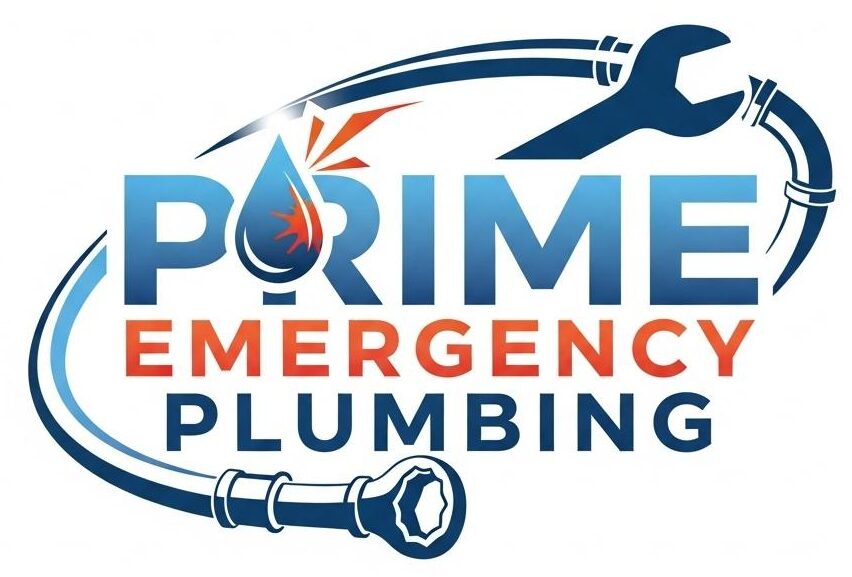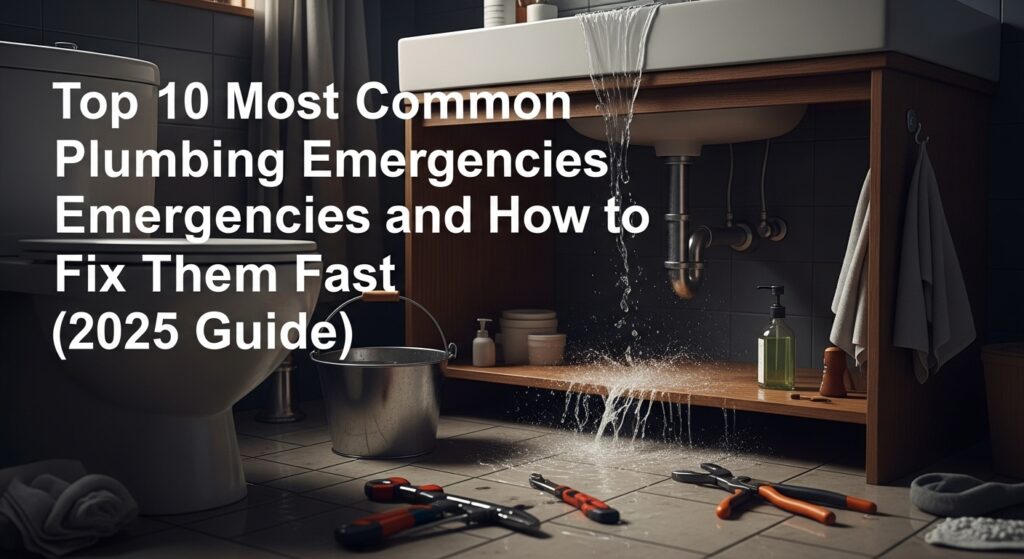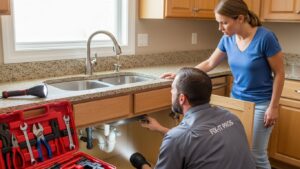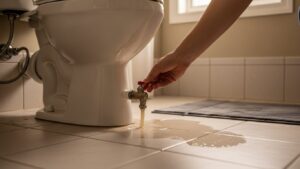What Are the Most Common Plumbing Emergencies: Top 10 Problems and How to Handle Them
Every homeowner dreads plumbing emergencies — the kind that strike suddenly, cause chaos, and demand immediate attention. Understanding what are the most common plumbing emergencies and how to handle them can save you time, stress, and money. From burst pipes to sewer backups, plumbing disasters can escalate quickly if not managed correctly.
In this guide, we’ll walk you through the top 10 plumbing emergencies, what causes them, and the steps you can take before the plumber arrives.
Understanding Plumbing Emergencies: What Qualifies as an Emergency?
A plumbing emergency isn’t just an inconvenience; it’s a problem that can cause water damage, property loss, or health risks if left untreated. The main difference lies in urgency and impact.
Difference Between Minor Plumbing Issues and True Emergencies
A slow-dripping faucet or a slightly clogged sink might be frustrating, but they’re rarely emergencies. However, burst pipes, overflowing toilets, and sewer backups are immediate threats that can cause structural damage and unsanitary conditions within minutes.
Why Timely Action Matters in Plumbing Disasters
Water is one of the most destructive elements inside a home. The longer a leak or overflow persists, the greater the risk of mold growth, foundation weakening, and electrical hazards. Taking swift action — like shutting off your water supply — can prevent thousands of dollars in repair costs.
Top 10 Most Common Plumbing Emergencies Homeowners Face
1. Burst Pipes – Causes, Signs, and Quick Fixes
A burst pipe is one of the most severe plumbing emergencies. It often occurs due to frozen water expanding inside the pipe, corrosion, or high water pressure.
Signs: Sudden drops in water pressure, water stains on walls, or visible flooding.
Quick Fix: Shut off the main water valve and drain your taps to relieve pressure before calling an emergency plumber.
2. Overflowing Toilets – How to Stop the Flow and Prevent Damage
An overflowing toilet is both messy and unhygienic. Most often, it’s caused by a blockage in the drainpipe or a malfunctioning float mechanism.
Quick Fix: Remove the tank lid, lift the float to stop water flow, and use a plunger to clear minor clogs. Avoid repeated flushing, which worsens the overflow.
3. Blocked Drains – Common Causes and Emergency Unclogging Tips
Blocked drains are common due to grease buildup, hair, soap scum, or foreign objects.
Quick Fix: Try a plunger or a mixture of baking soda and vinegar before resorting to chemical cleaners. If multiple drains are blocked, you may have a deeper issue in the main sewer line.
4. Leaking Faucets and Fixtures – When Drips Turn Dangerous
A small drip might not seem urgent, but leaky faucets waste gallons of water daily and can lead to rust or mold growth.
Quick Fix: Turn off the water under the sink and replace worn washers or O-rings. Persistent leaks may signal damaged seals inside the faucet assembly.
5. No Hot Water – Water Heater Malfunctions Explained
If your shower suddenly goes cold, you might be dealing with a water heater failure. Common causes include sediment buildup, faulty thermostats, or broken heating elements.
Quick Fix: Check the breaker or gas supply, then inspect for leaks near the tank. Never attempt to open or repair an electric heater without proper tools and knowledge.
6. Broken Water Lines – How to Identify and Respond Immediately
A broken water line can cause soggy lawns, low water pressure, and unexpected spikes in your bill. Tree roots, ground shifting, or corrosion are typical culprits.
Quick Fix: Turn off your water supply immediately and contact a professional for line replacement.
7. Sewer System Backup – Health Hazards and Quick Action Steps
A sewer backup is one of the most dangerous plumbing emergencies because it introduces harmful bacteria into your home.
Signs: Multiple drains gurgling or backing up simultaneously.
Quick Fix: Avoid using water fixtures until a professional clears the blockage and sanitizes affected areas.
8. Frozen Pipes – Prevention and Thawing Techniques
In cold climates, frozen pipes are a leading cause of bursts.
Prevention Tips: Insulate exposed pipes, keep a slow trickle of water flowing during freezing weather, and open cabinet doors to allow warm air circulation.
Quick Fix: Use a hairdryer or heating pad (never an open flame) to thaw frozen sections gradually.
9. Gas Leaks – Why They’re a Plumbing Emergency Too
Many don’t realize that plumbers also handle gas line repairs. A gas leak can lead to fires or explosions if ignored.
Quick Fix: Evacuate immediately, avoid turning on electrical switches, and call emergency services or your gas provider.
10. Sump Pump Failures – Avoiding Basement Floods
A failed sump pump during heavy rain can quickly flood your basement.
Prevention: Test your pump regularly and consider a battery backup system.
Quick Fix: Check for power outages or a clogged discharge pipe.
What To Do During a Plumbing Emergency: Step-by-Step Guide
- Shut Off the Main Water Supply – Stop the flow to prevent further flooding.
- Contain the Damage – Use towels or buckets to manage water.
- Turn Off Electricity if Needed – Safety first around water and wires.
- Call a Licensed Emergency Plumber – Look for 24/7 availability and proven experience.
How to Prevent Plumbing Emergencies in the Future
- Schedule annual inspections for your pipes and water heater.
- Avoid flushing wipes or grease down drains.
- Install leak detectors for early warnings.
- Replace aging plumbing systems before they fail.
Cost of Plumbing Emergencies: What to Expect
Emergency plumbing services can cost anywhere from $150 to over $2,000, depending on severity. Preventive maintenance can save up to 80% of these costs in the long run.
Choosing the Right Emergency Plumber
Look for licensed, insured professionals with 24-hour emergency service and transparent pricing. Check reviews, credentials, and warranties before hiring.
FAQs About Common Plumbing Emergencies
How do I know if my plumbing issue is an emergency?
If it risks flooding, contamination, or property damage — it’s an emergency.
Can I fix a burst pipe myself?
You can shut off the water and patch temporarily, but a plumber must replace it.
Why do pipes burst in winter?
Frozen water expands inside pipes, creating pressure that causes them to rupture.
How can I prevent drain clogs?
Avoid pouring grease, food, or hair down sinks and install strainers.
What should I do if my water heater leaks?
Turn off power and water supply immediately, then call a professional.
How often should I inspect my plumbing system?
At least once a year, or more frequently in older homes.
Conclusion: Be Prepared and Stay Calm in Plumbing Emergencies
Knowing what are the most common plumbing emergencies helps homeowners act fast and reduce damage. Always keep the contact of a trusted emergency plumber handy, practice regular maintenance, and stay proactive to avoid costly disasters.
For more expert plumbing advice, visit The Spruce’s Home Repair Guides.




